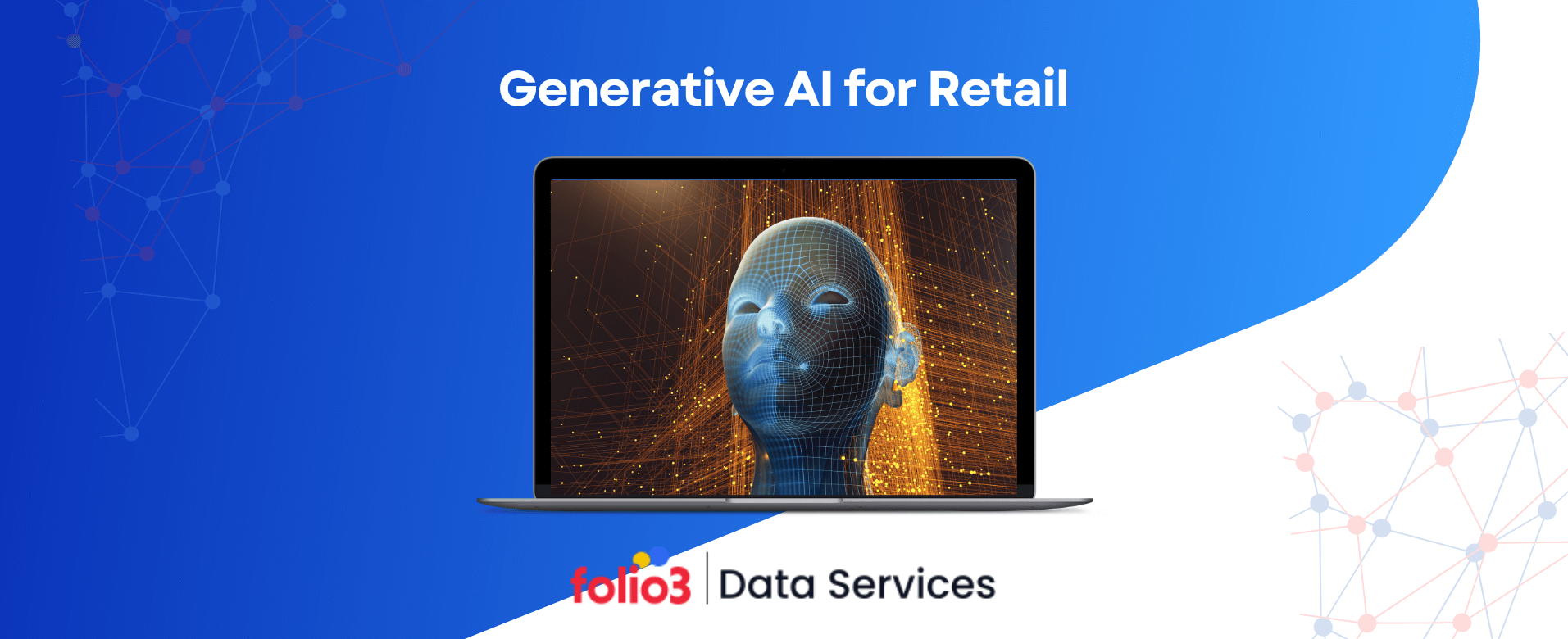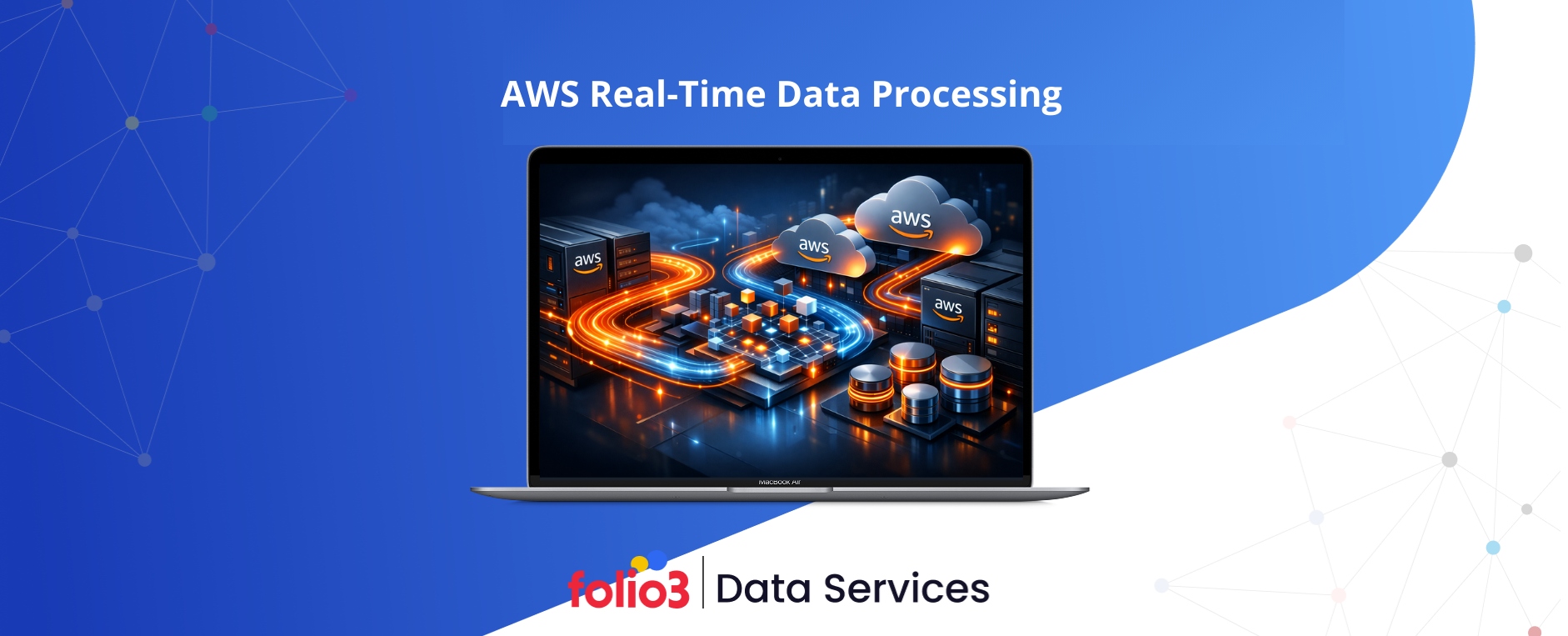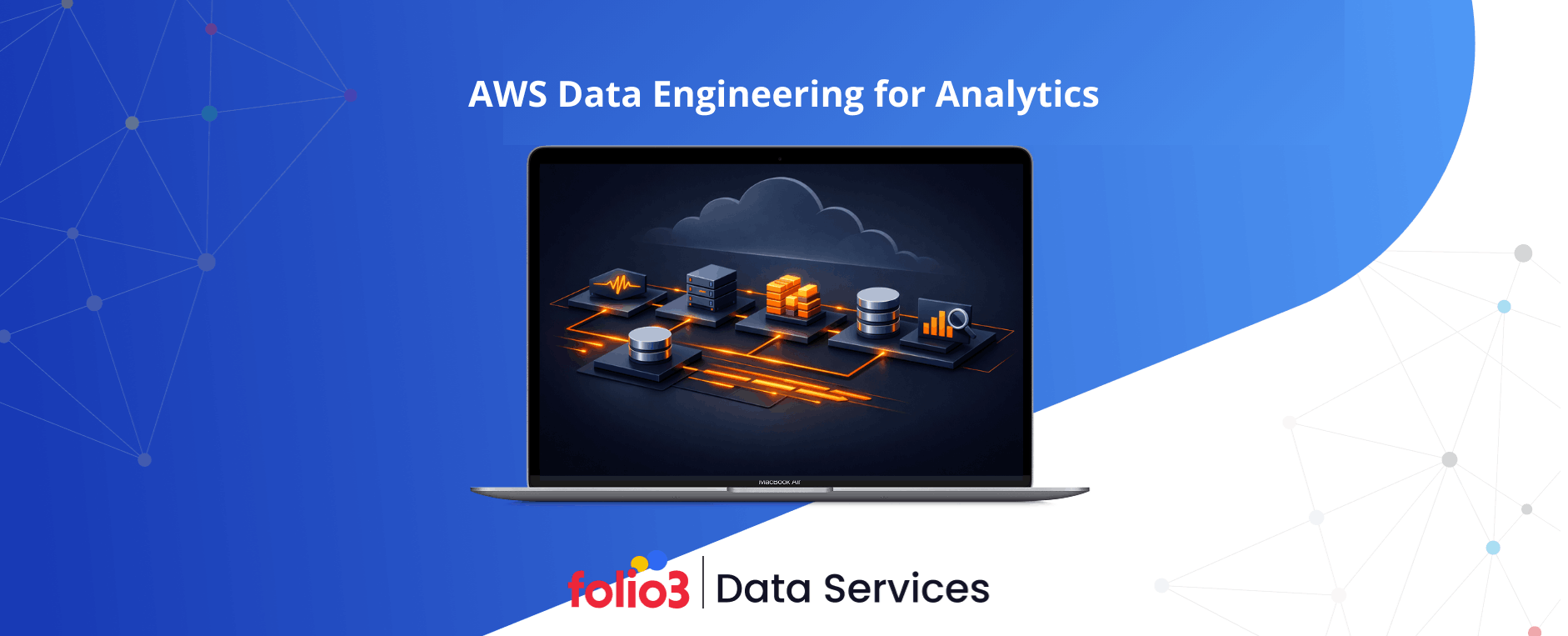The retail industry has experienced an unprecedented transformation in recent years, primarily driven by the rapid advancements in AI technologies. Among these innovations, generative AI for retail stands out as a game-changer, allowing retailers to redefine customer experiences, optimize operations, and drive growth.
As businesses increasingly rely on AI, generative AI use cases in retail are becoming more diverse, from enhancing personalized shopping experiences to predicting inventory demands with remarkable accuracy. Generative AI for retail companies is no longer a distant vision but a reality shaping the future of commerce.
Retailers are utilizing this technology to create tailored content, design virtual shopping experiences, and automate customer service, resulting in more efficient processes and improved customer satisfaction. Real-time statistics reveal that generative AI for retail examples has shown dramatic improvements in conversion rates, with some companies reporting up to 26% and increasing AOVs by 11% increase in sales through AI-driven personalization strategies.
With the global retail AI market expected to grow to over $35 billion by 2027, businesses are increasingly seeking the best generative AI for retail solutions to stay competitive. The potential for generative AI to revolutionize everything from supply chain management to targeted marketing is vast, making it an indispensable tool for forward-thinking retailers.
As we delve deeper into this topic, we will explore the exciting possibilities generative AI holds for the future of retail, showcasing real-world examples and illustrating how companies can use this technology to stay ahead of the curve.
Applications of Generative AI in Retail
As retailers continue to embrace digital transformation, generative AI for retail is emerging as a powerful tool to enhance various aspects of business operations. From improving customer experiences to streamlining inventory management, the applications of generative AI are vast and diverse.
Let’s explore some of the most impactful uses of this technology in retail today.
1. Personalized Customer Experiences
One of the most significant generative AI use cases in retail is personalized customer experiences. Retailers use AI to create tailored shopping journeys for each customer, predicting their preferences based on past behavior and real-time data.
With vast data, generative AI can recommend products, offer dynamic pricing, and suggest specific content that resonates with individual shoppers. This level of personalization boosts customer satisfaction and drives conversions and customer loyalty.
For example, generative AI for retail companies like personalized shopping assistants or virtual stylists can interact with customers, suggesting outfits based on their preferences and styles. These AI-driven systems create a seamless and customized shopping experience, making customers feel valued and understood. This application has proven to increase engagement, with some companies seeing a significant uptick in conversion rates due to tailored product recommendations.
2. Dynamic Pricing and Promotions
Pricing strategies are undergoing a significant shift thanks to generative AI for retail. Traditional pricing models, which rely on static price points, are being replaced by dynamic pricing systems that adapt in real time based on various factors such as demand, competitor pricing, and customer behavior.
Generative AI can analyze market trends and predict the optimal price for a product, ensuring retailers remain competitive while maximizing profitability.
Generative AI for retail companies can use these insights to run targeted promotions, adjusting discounts and offers to match specific customer segments.
For instance, AI algorithms can generate personalized discounts for repeat customers, further strengthening customer retention. Generative AI examples in retail include dynamic pricing tools that constantly update based on customer demand and seasonality, ensuring that products are always priced at the most advantageous levels.
3. Product Design and Innovation
Innovation in product design is another area where generative AI for retail is making an impact. By using AI to analyze trends, customer feedback, and market data, retailers can generate new product ideas that are more likely to succeed.
Generative AI can also assist in creating new prototypes or variations of existing products, allowing companies to test and iterate without costly and time-consuming manual processes quickly. One standout example is the use of AI-driven tools in fashion and apparel, where generative AI for retail companies are designing clothing collections based on real-time fashion trends and consumer preferences.
These AI systems help retailers stay ahead of the curve, offering innovative products that meet customer needs. The ability to rapidly prototype and test new designs has given retailers a competitive edge, allowing them to stay relevant in a fast-paced market.
4. Content Creation for Marketing
The demand for fresh, engaging content is a constant challenge in retail marketing. Generative AI for retail has proven to be a game-changer in this area, enabling retailers to automatically generate content for websites, social media, and advertising campaigns.
AI-driven content generation tools can create compelling product descriptions, promotional emails, and even social media posts, all tailored to specific audiences. For generative AI for retail companies, content creation becomes more efficient, saving time and resources while maintaining high creativity and relevance.
AI tools can also help optimize content for SEO, ensuring that consumers can quickly discover marketing materials. This application has made a notable impact, with retailers utilizing AI-generated content to boost their digital presence and improve customer engagement.
5. Inventory and Supply Chain Optimization
Efficient inventory and supply chain management are critical for retail success, and generative AI for retail is helping companies streamline these processes. By predicting demand patterns and optimizing stock levels, AI can ensure that products are always available without overstocking or understocking.
This reduces costs and improves customer satisfaction by ensuring that products are consistently available when needed. Generative AI examples in retail include AI systems that generate accurate forecasts based on historical sales data, seasonal trends, and market conditions. These systems can also automate reorder processes, ensuring stock levels align with demand. For generative AI for retail companies, this leads to more efficient operations, less waste, and better overall profitability.
Benefits of Generative AI in Retail
The integration of generative AI for retail has opened up numerous avenues for businesses to enhance their operations, engage with customers more effectively, and innovate rapidly. As retailers continue to explore and use this technology, its benefits are becoming increasingly evident across various facets of the business.
Here are some of the key advantages of implementing generative AI for retail:
1. Improved Customer Engagement and Satisfaction
One of the most compelling benefits of generative AI for retail companies is its ability to enhance customer engagement and satisfaction significantly. By utilizing AI to deliver personalized shopping experiences, retailers can cater to individual preferences, needs, and behaviors.
Generative AI allows for the real-time generation of tailored product recommendations, customized offers, and personalized content. This level of personalization is crucial in building long-term customer loyalty and increasing overall satisfaction.
2. Enhanced Operational Efficiency
Generative AI for retail is not just about improving customer-facing experiences; it also plays a crucial role in streamlining behind-the-scenes operations. Retailers can significantly enhance their operational efficiency by automating routine tasks such as inventory management, order processing, and demand forecasting.
AI systems can quickly analyze large datasets to predict trends, optimize inventory levels, and recommend the most efficient supply chain routes. The result is a more agile and responsive operation that reduces manual intervention, minimizes human error, and increases overall productivity.
For generative AI for retail companies, this means less time spent on operational bottlenecks and more focus on strategic decision-making. Retailers are increasingly turning to AI-powered tools for these reasons, allowing them to optimize processes and stay competitive in a fast-paced environment.
3. Accelerated Time-to-Market for New Products
The ability to bring new products to market faster than competitors is a significant advantage in the retail industry. Generative AI for retail accelerates product development by analyzing consumer data and market trends to suggest designs, concepts, and features likely to resonate with customers.
This technology can rapidly generate product prototypes and variations, reducing the time spent on product development cycles. For generative AI for retail companies, this means that they can quickly test new ideas and adjust based on consumer feedback, ensuring that only the most promising products make it to market.
4. Cost Reduction in Marketing and Design Processes
Another significant benefit of generative AI for retail is the potential for substantial cost savings in marketing and design. AI-driven content creation tools can automatically generate high-quality promotional materials, product descriptions, and social media posts, saving retailers valuable time and resources.
This automation allows marketing teams to focus on strategy and creativity while AI handles most content creation. In the design process, generative AI for retail companies can use algorithms to generate product designs, eliminating the need for extensive trial-and-error prototypes.
This reduces the cost of physical materials and the labor associated with the design process. Moreover, by continuously refining designs based on customer feedback and market data, AI ensures that retailers invest in the most successful product concepts.
How Will GenAI Change Retail?
The rise of generative AI for retail is poised to revolutionize the industry by bringing a new level of business intelligence, efficiency, and creativity. As retailers increasingly adopt generative AI technologies, how they interact with customers, manage operations, and drive innovation will undergo a profound transformation.
Let’s explore the transformative potential of generative AI in the retail sector and its impact on key aspects of retail business.
Overview of GenAI’s Transformative Potential in Retail
Generative AI (GenAI) is set to reshape the retail landscape by enabling companies to create highly personalized and adaptive consumer experiences. With the ability to analyze vast amounts of data and generate tailored content or product recommendations, generative AI for retail offers businesses a powerful tool to understand their customers better and anticipate their needs.
The power of generative AI for retail lies in its ability to simulate multiple possibilities, making it ideal for businesses to innovate faster and with greater precision. Using generative AI use cases in retail, companies can enhance customer interactions, streamline operations, and drive new product and service innovation levels. Retailers that embrace this technology will be better positioned to lead in an increasingly competitive market.
Impact on Customer Experiences, Operations, and Innovation
Customer Experiences
One of the most notable examples of generative AI in retail is the improvement of customer experiences. By using AI to understand customer preferences and predict future behavior, retailers can offer highly personalized recommendations and shopping experiences.
Whether it’s a chatbot offering real-time assistance, AI-generated personalized offers, or insights derived through retail analytics consulting, generative AI for retail can significantly enhance engagement, making customers feel more valued and understood.
Operations
On the operational side, generative AI for retail companies can automate inventory management, supply chain optimization, and demand forecasting tasks. This efficiency frees up human resources to focus on more strategic initiatives, while AI ensures that critical tasks are performed with incredible speed and accuracy. As AI systems continuously learn and adapt, their ability to improve operational efficiency will lead to cost savings and smoother processes.
Innovation
Innovation is another key area where generative AI will have a lasting impact. Retailers can use generative AI for retail examples to design new products, prototype concepts faster, and introduce fresh solutions to meet customer demands.
AI-driven insights can help identify emerging trends and unmet needs in the market, enabling businesses to stay ahead of the curve and offer new products or services that resonate with their audience.
Shift Toward AI-driven Decision-making in Retail
As generative AI for retail becomes more ingrained in the industry, decision-making will increasingly be driven by data, advanced analytics consulting, and AI-generated insights. Rather than relying solely on intuition or historical patterns, retailers can make more informed, real-time decisions powered by AI.
For example, the best generative AI for retail solutions can analyze consumer data and generate dynamic pricing strategies that maximize revenue, considering factors like demand elasticity, competitor prices, and customer buying behavior.
This shift toward AI-driven decision-making will empower retailers to react faster to market changes and optimize operations with precision. Retailers can also use AI to automate routine decisions, such as reordering stock or adjusting marketing campaigns, allowing them to focus on high-level strategy and growth.
The rise of generative AI for retail companies means that AI will play a central role in shaping retail strategies, from product development to customer engagement. AI will become a trusted advisor, offering actionable insights that drive smarter, more efficient business decisions across all retail areas.
Revolutionize Your Retail Operation with Folio3 and GenAI
As the retail landscape continues to evolve, businesses increasingly turn to generative AI for retail to stay ahead of the competition. Folio3, with its expertise in deploying cutting-edge AI solutions, is at the forefront of this transformation, helping retail companies harness the power of generative AI to optimize operations, engage customers, and drive innovation.
With the help of the best generative AI for retail technologies, Folio3 offers tailored solutions designed to meet each retailer’s unique needs, helping them stay agile and responsive in a dynamic marketplace.
Folio3’s Expertise in Deploying Generative AI Solutions
Folio3 brings years of experience in generative AI for retail, helping companies across various sectors adopt and implement AI technologies that drive tangible, measurable outcomes.
With a deep understanding of both the retail industry and advanced AI capabilities, Folio3 ensures that each AI strategy is perfectly aligned with the goals and challenges of the business.
With generative AI for retail companies becoming more important, Folio3 tailors AI strategies that integrate seamlessly into existing systems, allowing businesses to realize the benefits of AI quickly.
Tailored AI Strategies for Retail Businesses
At Folio3, we understand that no two retailers are the same. That’s why we provide tailored generative AI solutions designed to fit the specific needs of each retail business. Whether you’re a large-scale retailer looking to optimize inventory management or a boutique brand aiming to enhance customer personalization, Folio3 crafts customized AI strategies to achieve your unique business objectives.
Our approach begins with a deep dive into your current operations, goals, and customer base, allowing us to recommend the most impactful generative AI use cases in retail. By understanding the nuances of your business, we can create solutions that help you boost customer satisfaction, streamline operations, and drive innovation—whether through AI-driven product recommendations, dynamic pricing strategies, or automated content generation.
Folio3’s generative AI for retail strategies ensures that your business not only adapts to the future of retail but leads it. Our AI solutions evolve with your needs, offering ongoing support to help you stay competitive in an ever-changing retail landscape.
Examples of Folio3’s Impactful AI Implementations in Retail
One example of Folio3’s AI expertise is the Compliance Monitoring & Prevention System developed in collaboration with BMC. This system uses generative AI, computer vision, AI data extraction, and machine learning techniques to revolutionize safety and compliance monitoring. While initially designed for workplace safety, the system’s innovative approach can be adapted to retail environments.
In this case, Folio3 created a Proof of Concept (POC) for a system that scans environments in real time, detects non-compliance, and provides immediate corrective actions. The system integrates gamification features, where employees are incentivized through points and rankings, making adherence to safety protocols more engaging.
This same approach can be applied to inventory monitoring, customer behavior analysis, and staff compliance with in-store processes for retail. By recognizing patterns and predicting future issues, AI helps prevent compliance failures and enhances operational efficiency.
Real-World Use Cases of Generative AI for Retail
Several leading retailers are successfully integrating generative AI to enhance their operations and customer experiences. For instance, Nike uses generative AI for personalized product recommendations, driving customer engagement through tailored suggestions. Sephora uses AI to offer virtual try-ons, allowing customers to experiment with makeup virtually, improving shopping convenience, and boosting sales.
Amazon also stands out with its advanced AI algorithms that optimize product listings and supply chain management, offering dynamic pricing and personalized shopping journeys. These are prime examples of generative AI for retail companies creating highly personalized experiences, which lead to increased conversion rates and improved customer satisfaction.
The best generative AI for retail also facilitates design innovation, with fashion brands utilizing AI to predict trends and design new collections in real-time. As generative AI use cases in retail evolve, these technologies continue to shape the future of commerce by enhancing personalization, operational efficiency, and creative design processes.
FAQs
How can Generative AI enhance customer experiences in retail?
Generative AI enhances customer experiences by delivering personalized recommendations, tailored content, and dynamic interactions, creating a more engaging and customized shopping journey that boosts customer satisfaction and increases conversion rates.
Is Generative AI suitable for small and medium-sized retail businesses?
Yes, generative AI benefits small and medium-sized businesses by optimizing marketing, pricing, inventory, and content creation. It enables cost-effective personalization, streamlining operations, and helping smaller retailers compete effectively.
How secure is Generative AI for retail data?
Generative AI for retail can be secure when proper safeguards, such as encryption and access controls, are in place. With the correct security protocols, AI can enhance operations while protecting sensitive customer and business data.
Conclusion
Generative AI for retail is transforming the industry, offering powerful tools to enhance customer experiences, streamline operations, and drive innovation. From personalized recommendations to AI-driven product design, the possibilities are vast.
As more retailers adopt this technology, its role in shaping the future of commerce will only grow stronger, making it an essential investment for businesses looking to stay ahead in an increasingly competitive market.



